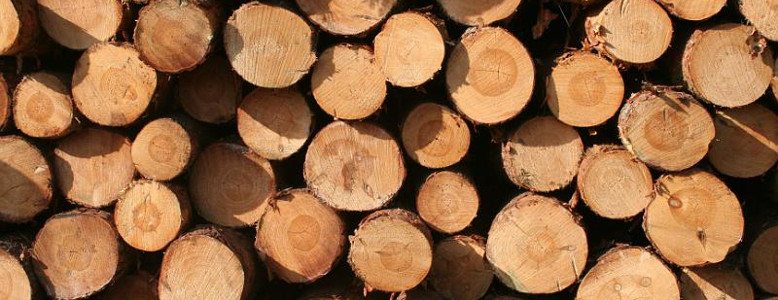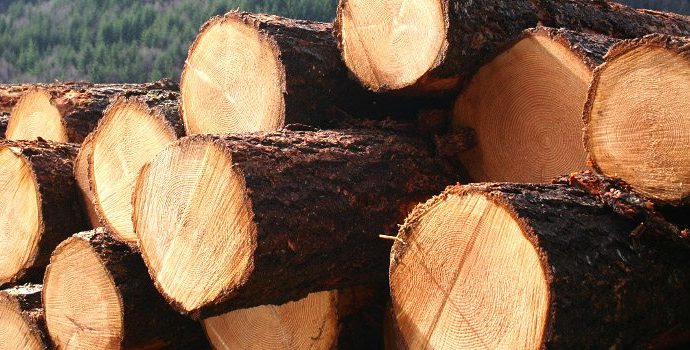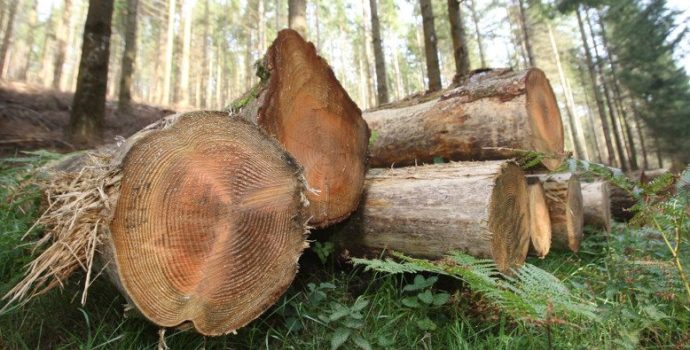Forestry Reports
Forestry Council Report September 2021

Market Review
- There continues to be high demand but increasing supply challenges in the timber market globally, which is being compounded in Ireland by the backlog with felling licences. These market conditions are expected to continue to the end of 2021.
- IFA have received quoted prices if in excess of €120 per tonne standing for sawlog and price rises are expected to continue this year.
- At the Summer General Assembly of the European Organization of the Sawmill (EOS) Industry delegates were told that spruce will be less available in the future, as a scarcity of resources in the softwood sector is forecast, which will make it a sellers’ market for roundwood.
- The Russian ban on exporting untreated or roughly processed wood, which is expected to come into force next year will push China to diversify away from the importation of Russian which is expected to put pressure on European forests and impact global sawn wood markets.
- Official figures show that the deliveries of logs to China from Europe are already on the rise and there is a risk of a structural shortage of logs across many European countries.
- In August, a total of 165 forest licences were issued compared with 368 licences in June, prior to the introduction of the new public consultation on appropriate assessment introduced in early July. This represents a 223% decrease in output compared with June.
- Of the 265 licences that issued in August, 101 issued to the private sector and 64 issued to Coillte.
- The breakdown of the licences that issued to the private sector is as follows: 15 afforestation licences, 27 forest road licence and 59 felling licences.
- Of the 59 licences that issued
- The total number of licences issued in August 2021 represents a 223% decrease in output compared with April.
- The DAFM dashboard provides addition information:
Activity since last National Council
- IFA held a protest outside the Dáil 14th July 2021 to show forest owners frustration will the lack of action with regards forestry licences. There are nearly 6,000 licences (afforestation, road and felling) in the system pending decision by the Department. Some farmers are waiting in excess of two years to get a licence to thin forest, when the legislation says they should get a decision within 4 months. The protest aimed to highlight:
- The excessive bureaucracy, ineffective administration and spiralling costs associated with farm forestry is no longer being viable at farm scale.
- Farmers have lost confidence with forestry and under current regulatory system the Government’s policy to plant 8,000 ha’s per annum is no achievable.
- Due to delays getting a licence, farmers with forests ready to thin may be forced into a non-thin management system, which will devalue the forest by over €10,000 per hectare over rotation.
- Ireland’s forestry regulatory system for private forest owners most onerous in the EU.
- The current licence system is not fit for purpose and must be reformed to create a regulatory framework that supports planting and management at farm level.
At the protest IFA was seeking the (i) reform of the regulatory framework to support planting and management at farm level and (ii) the introduction of emergency legislation to be introduced to so farmers no longer require a licence for management operations such as forest road construction and thinning operations. These should be approved under a forest management plan. The protest was well supported by TD’s and Senators with both Minister McConalogue and Minister Hackett in attendance.
- The Project Board of Project Woodland issued its first interim report on the 27th July 2021. The work undertake by IFA since its formation in March are reflected in the recommended actions in the report, particularly with regards to the legal and regulatory review of the licence system. The Board has agreed to advance two recommendations immediately:
- An independent external regulatory review is being commissioned by the Minister. The review is to include (i) a specific consideration of the potential for a differentiation between projects having regard to scale, location, and type, (ii) a single consent, permit, licence or other authorisation, to include planting, felling and other related activities and (iii) evaluation of the current 15km radius for screening for appropriate assessment, or recommend an alternative objective approach to screening. As a direct result of the lobbying undertaken by IFA with the wider sector and stakeholders, the Board has agreed to fast track the review of the (i) 15km radius for screening and (ii) the requirement for a licence for forest management operations such as thinning and forest roads. A report is expected by the end of 2021.
- The second recommendation to be prioritised is the development of a shared vision for the forest sector.
- On the 7th July a statutory instrument was introduced by the Department of Housing, Local Government and Heritage, which introduced a second 30-day public consultation period for all planning applications, not just forestry applications that requires an appropriate assessment. This has caused a significant decline in the output of licences as outlined previously.
- The Farm Forestry Management committee met with Mr. Seamus Dunne, DAFM who outlined changes implemented to the licencing system that no longer requires a farmer to submit a NIS with application, the Appropriate Assessment report is compiled internally by the Department and only in certain sites will the farmer have to produce a NIS. DAFM envisage this will increase the output of licences. IFA sought a timeline from the Department on when the backlog would be cleared.
- IFA made representation to Joint Committee on Agriculture, Food and the Marine in advance of Minister Hackett and DAFM official presentation on the 4th August on the challenges in the Forestry sector. The issues discussed on the day ranged from afforestation rates, licence output, removal of management operations from licence system, regulatory reform, Project Woodland, ash dieback and forest damage scheme.
- The Reconstitution & Underplanting Scheme (RUS) eligibility criteria for ash plantations affected by ash dieback has been extended to plantations of 25 years of age and over, which were previously excluded.
- The total area of ash planted in the country is approximately 14,000 ha.
- To date, the Department has received 339 applications for RUS for 1,364ha, of which 83 have been approved for 280ha.
- IFA issued the following press releases:
- Ministers’ statement that good news issued to forest owners at the protest cannot deflect from the ongoing forest licence crisis.
- Farmers with forestry were protesting to highlight the crisis in the forest sector and the need for emergency legislation to reform the licence system.
- That the requirement to get planning permission to replant diseased ash plantations with conifer species is the final nail in the coffin for the Reconstitution Underplanting Scheme (RUS).
- Changes to the appropriate assessment procedures, and the removal of the need to submit a Natura Impact Statement in order for a felling and road application to be prioritised, were positive developments.
- IFA attended Hen Harrier Threat Response Plan Consultative committee meeting organised by NPWS to discuss the imminent publication of the Threat Response Plan for the Hen Harrier 2021 – 2025.
- The National Farm Forestry committee met in June and the Farm Forestry Management committee met in June and August.
Upcoming issues
- Continue work to secure changes to the licencing system and reduce the current backlog.
- Campaign for changes to the Reconstitution and Underplanting Scheme (RUS) to adequately compensate farmers for financial loss due to the disease.
- Increase farmer understanding of the value of the carbon stored in their forests over the rotation and operational carbon credit schemes.


